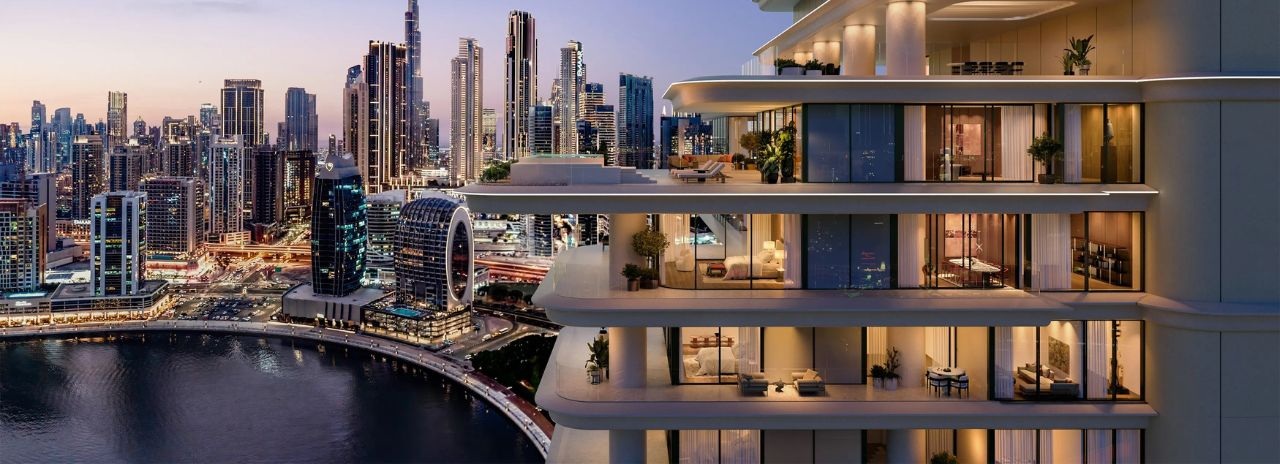Is Now the Right Time to Buy an Off-Plan Property in Dubai? Current Trends & Risks
Wednesday, 5 November 2025
The off-plan property market in Dubai has been one of the most dynamic and fast-growing real estate segments in recent years. With flexible payment plans, innovative designs, and world-class developments across the city, 2025 presents an exciting opportunity for both investors and homebuyers.
But is now truly the right time to buy off-plan property in Dubai? Let’s take a closer look at the current trends, rewards, and potential risks to help you make an informed decision.
Table of Contents
- What Are Off-Plan Properties?
- Why 2025 Is a Promising Year for Off-Plan Investments
- Top Locations for Off-Plan Property in 2025
- Benefits of Buying Off-Plan Property
- Risks and What to Watch Out For
- Investor Tips: How to Buy Smart
- Frequently asked questions
What Are Off-Plan Properties?
Off-plan properties refer to real estate units that are sold before completion — sometimes even before construction begins. Buyers purchase based on the developer’s design, floor plans, and specifications, often at more competitive prices compared to ready properties.
One of the key attractions of off-plan investments in Dubai is the flexibility in payment schedules, which allows buyers to secure prime locations with manageable installments. This structure, combined with Dubai’s high-quality construction standards, modern amenities, and transparent regulations, makes off-plan buying a practical and strategic option for many.
As construction progresses, investors can often benefit from capital appreciation, turning these early purchases into profitable long-term assets.
Why 2025 Is a Promising Year for Off-Plan Investments
The Dubai real estate market continues to show strong momentum in 2025. Several key trends support this optimism:
- Sustained economic growth: Dubai’s diversified economy, tourism recovery, and Expo legacy projects continue to drive demand for housing.
- Regulatory improvements: Stricter government rules ensure escrow account usage and milestone-based project monitoring for better buyer protection.
- Investor-friendly financing: Many banks are offering up to 70–80% loan-to-value (LTV) ratios for off-plan purchases, making financing more accessible.
- Steady returns: Areas like Arjan and Jumeirah Village Circle (JVC) continue to record 6–8% rental yields, reflecting the strong end-user and investor demand.
Recent data from Dubai Land Department confirms that property values and rental returns have been consistently increasing across multiple districts, reaffirming investor confidence.
Top Locations for Off-Plan Property in 2025
- Arjan: Contemporary developments with smart home technology and modern amenities.
- Jumeirah Village Circle (JVC): Affordable properties with strong rental demand and community living.
- Dubai South: A fast-growing hub benefiting from airport expansion and Expo legacy infrastructure.
- Dubai Creek Harbour: A scenic waterfront community with long-term growth potential.
- DAMAC Hills & DAMAC Hills 2: Family-friendly areas with parks, schools, and golf facilities.
- The Valley & The Oasis: Master-planned communities offering serene living and sustainable designs.
These areas have shown steady appreciation over the past few years, with off-plan prices rising by 20–30% in some locations.
Benefits of Buying Off-Plan Property
- Flexible Payment Plans: Off-plan properties usually come with payment plans such as 60/40 or 80/20 structures, allowing buyers to spread payments until handover. This lowers the initial financial burden and improves affordability.
- Potential for Capital Growth: Early investors often enjoy price appreciation as the project nears completion — a key advantage for those seeking long-term gains.
- Modern Designs and Amenities: Most off-plan projects in Dubai incorporate smart technology, sustainable materials, and contemporary layouts that appeal to both residents and tenants.
- Lower Entry Cost: Compared to ready properties, off-plan prices are generally lower, allowing first-time buyers and investors to enter the market with more accessible options.
Risks and What to Watch Out For
While the opportunities are strong, it’s essential to approach off-plan investments with diligence and awareness.
- Construction Delays: Although rare due to strict regulations, timelines can shift. Always budget for potential delays.
- Design or Quality Variations: Compare the project brochure with your contract to ensure alignment.
- Market Fluctuations: External economic factors can influence short-term resale potential.
- Developer Reputation: Always verify the developer’s track record, RERA registration, and escrow account details before committing.
With careful planning, these risks can be mitigated — ensuring your investment remains secure and rewarding.
Investor Tips: How to Buy Smart
- Define your goal — capital appreciation, rental yield, or residency.
- Choose trusted, escrow-registered developers.
- Compare payment schedules, floor plans, and project features.
- Work with a RERA-approved real estate agent for transparency.
- Monitor construction milestones and maintain regular updates from the developer.
By following these steps, buyers can make informed choices that align with their investment goals.
Frequently Asked Questions (FAQs)
What is an off-plan property in Dubai?
An off-plan property is one that’s sold before it’s completed, often during early construction stages, allowing buyers to benefit from flexible payment options and potential capital appreciation.
Why should I invest in off-plan property in 2025?
With strong economic growth, improved regulations, and attractive payment plans, 2025 offers a promising window for both investors and end-users to secure high-quality properties at competitive prices.
Are off-plan investments safe in Dubai?
Yes, the Dubai Land Department and RERA have implemented strict rules on escrow accounts, milestone-based payments, and developer registration to protect buyers.
Can I get a mortgage for an off-plan property?
Many banks in Dubai offer up to 70–80% loan-to-value (LTV) financing for approved off-plan projects, making it easier for buyers to manage payments.
What are the potential risks of buying off-plan property?
Risks may include construction delays, design changes, or short-term market fluctuations. However, these can be minimized by choosing reputable developers and reviewing all terms carefully before signing.





